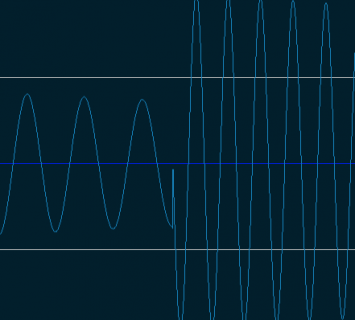Hi, i have a problem on my teensy audio board.
if I play a note of drum1.noteOn() and i repeat "drum1.noteOn()" before that the length of the first note is finished there is a audio clicking.
If you play a drum2.noteOn() (second drum synth) over the lenght of durm1 there aren't audio clicking but if i want to play more notes it's impossible without clicking....
can you help me?
Thank you.
if I play a note of drum1.noteOn() and i repeat "drum1.noteOn()" before that the length of the first note is finished there is a audio clicking.
If you play a drum2.noteOn() (second drum synth) over the lenght of durm1 there aren't audio clicking but if i want to play more notes it's impossible without clicking....
can you help me?
Thank you.


